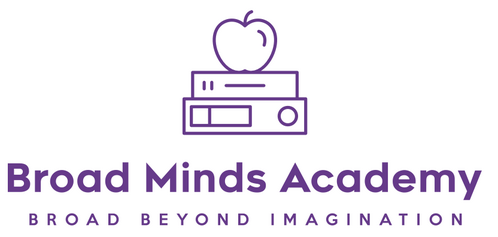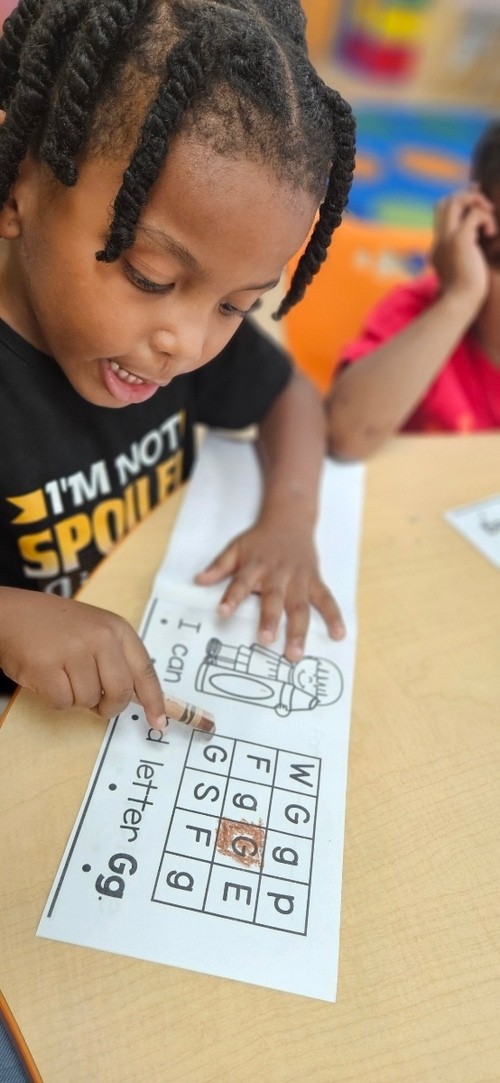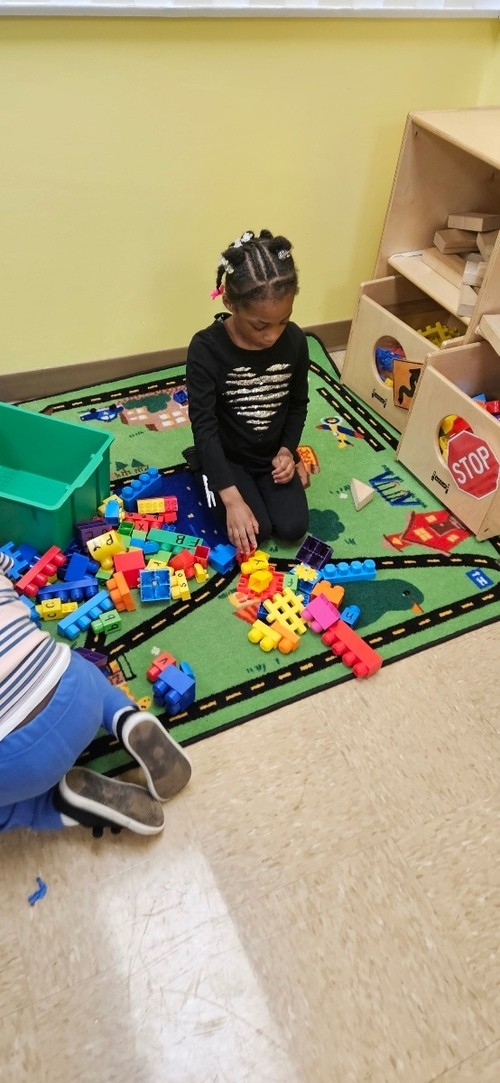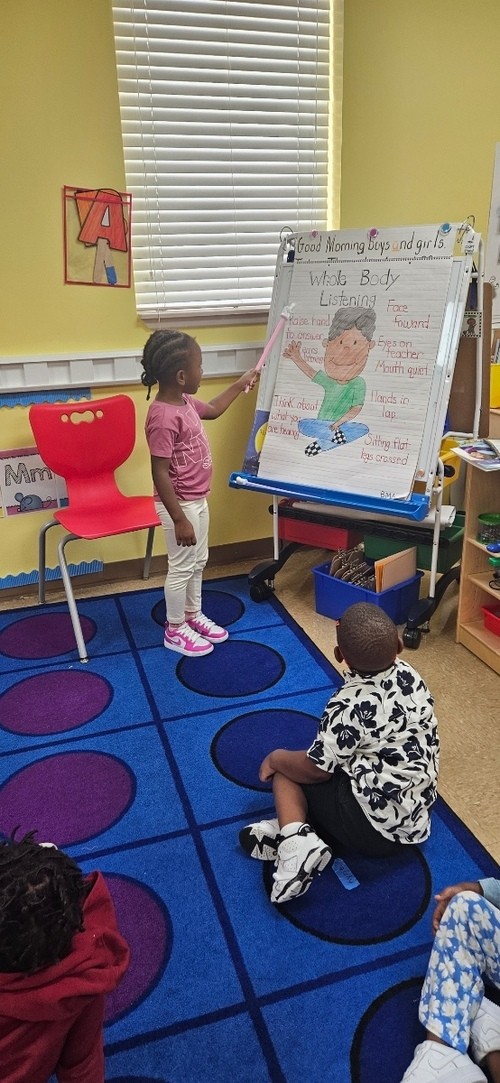currently enrolling four year old students! aftercare available.
contact us at 901-323-2429

An education from Broad Minds Academy empowers students to define success on their own terms by inspiring their love of learning, broadening their sense of responsibility, developing their critical thinking skills, and motivating them to take action in a global community.



Why Pre-K?
Pre-kindergarten (Pre-K) programs offer a range of benefits for young children, laying a strong foundation for future academic and social success. Here are some of the key advantages:
1. Early Cognitive Development
Improved Language Skills: Pre-K helps children develop language and communication skills. Early exposure to new vocabulary and structured language use can significantly boost literacy skills.
Stronger Academic Skills: Pre-K programs introduce early math, science, and literacy concepts, giving children a head start on skills that will be essential in later school years.
Critical Thinking: Activities in Pre-K often emphasize problem-solving, reasoning, and decision-making, encouraging children to think critically and creatively.
2. Social and Emotional Growth
Social Skills: In Pre-K, children interact with peers, learning important skills like cooperation, sharing, empathy, and conflict resolution.
Emotional Regulation: Early childhood education helps children understand and manage their emotions, fostering greater emotional intelligence.
Confidence Building: Children who attend Pre-K tend to be more confident when transitioning into kindergarten, as they are more familiar with structured settings and routines.
3. School Readiness
Familiarity with School Environment: Pre-K gives children the opportunity to adjust to a school-like setting before kindergarten, reducing anxiety about the school experience.
Routine and Structure: Children get used to a structured environment with schedules and rules, which helps them transition smoothly to kindergarten.
4. Long-Term Academic Success
Improved Academic Performance: Research shows that children who attend Pre-K programs are more likely to do well in elementary school, with higher test scores, better attendance, and improved graduation rates.
Increased Graduation Rates: Studies have found that Pre-K attendance is linked to higher rates of high school graduation and even post-secondary education.
5. Equity and Access
Closing the Achievement Gap: Pre-K programs are particularly beneficial for children from low-income families or underserved communities, providing them with early educational opportunities that they might not otherwise have access to.
Support for Diverse Learners: Pre-K classrooms often include diverse learners, helping children to understand and appreciate differences while learning valuable social skills.
6. Development of Executive Functioning Skills
Self-Regulation: Pre-K helps children develop executive functioning skills, such as attention control, memory, and planning.
Task Completion: Children learn how to start tasks, stay on task, and follow through with their work—important skills that will support success in school and beyond.
7. Parental Benefits
Support for Parents: Pre-K provides parents with more time to pursue work or education while knowing their children are in a safe, enriching environment.
Parent-Teacher Communication: Pre-K programs often have strong systems for communication with parents, helping families stay involved in their child’s learning and development.
8. Behavioral Benefits
Fewer Behavioral Issues: Children in Pre-K tend to display fewer behavioral problems in later grades, as they have been taught to manage their impulses and emotions in a structured setting.
Better Focus and Attention: Early education promotes improved concentration and the ability to sit still and focus on tasks for longer periods of time.
9. Health and Nutrition
Access to Health Services: Many Pre-K programs, especially public ones, provide access to health services, nutrition programs, and other supports that benefit the child’s overall well-being.
Encouragement of Healthy Habits: Some Pre-K programs focus on teaching children about healthy eating, exercise, and other positive habits.
10. Support for Special Needs
Early Identification of Learning Disabilities: Early education programs can help identify learning delays, disabilities, or other special needs that can then be addressed with early intervention, setting children up for future success.
Overall, Pre-K provides children with an opportunity to develop academically, socially, and emotionally, and is a powerful tool in promoting long-term educational and personal success.
1. Early Cognitive Development
Improved Language Skills: Pre-K helps children develop language and communication skills. Early exposure to new vocabulary and structured language use can significantly boost literacy skills.
Stronger Academic Skills: Pre-K programs introduce early math, science, and literacy concepts, giving children a head start on skills that will be essential in later school years.
Critical Thinking: Activities in Pre-K often emphasize problem-solving, reasoning, and decision-making, encouraging children to think critically and creatively.
2. Social and Emotional Growth
Social Skills: In Pre-K, children interact with peers, learning important skills like cooperation, sharing, empathy, and conflict resolution.
Emotional Regulation: Early childhood education helps children understand and manage their emotions, fostering greater emotional intelligence.
Confidence Building: Children who attend Pre-K tend to be more confident when transitioning into kindergarten, as they are more familiar with structured settings and routines.
3. School Readiness
Familiarity with School Environment: Pre-K gives children the opportunity to adjust to a school-like setting before kindergarten, reducing anxiety about the school experience.
Routine and Structure: Children get used to a structured environment with schedules and rules, which helps them transition smoothly to kindergarten.
4. Long-Term Academic Success
Improved Academic Performance: Research shows that children who attend Pre-K programs are more likely to do well in elementary school, with higher test scores, better attendance, and improved graduation rates.
Increased Graduation Rates: Studies have found that Pre-K attendance is linked to higher rates of high school graduation and even post-secondary education.
5. Equity and Access
Closing the Achievement Gap: Pre-K programs are particularly beneficial for children from low-income families or underserved communities, providing them with early educational opportunities that they might not otherwise have access to.
Support for Diverse Learners: Pre-K classrooms often include diverse learners, helping children to understand and appreciate differences while learning valuable social skills.
6. Development of Executive Functioning Skills
Self-Regulation: Pre-K helps children develop executive functioning skills, such as attention control, memory, and planning.
Task Completion: Children learn how to start tasks, stay on task, and follow through with their work—important skills that will support success in school and beyond.
7. Parental Benefits
Support for Parents: Pre-K provides parents with more time to pursue work or education while knowing their children are in a safe, enriching environment.
Parent-Teacher Communication: Pre-K programs often have strong systems for communication with parents, helping families stay involved in their child’s learning and development.
8. Behavioral Benefits
Fewer Behavioral Issues: Children in Pre-K tend to display fewer behavioral problems in later grades, as they have been taught to manage their impulses and emotions in a structured setting.
Better Focus and Attention: Early education promotes improved concentration and the ability to sit still and focus on tasks for longer periods of time.
9. Health and Nutrition
Access to Health Services: Many Pre-K programs, especially public ones, provide access to health services, nutrition programs, and other supports that benefit the child’s overall well-being.
Encouragement of Healthy Habits: Some Pre-K programs focus on teaching children about healthy eating, exercise, and other positive habits.
10. Support for Special Needs
Early Identification of Learning Disabilities: Early education programs can help identify learning delays, disabilities, or other special needs that can then be addressed with early intervention, setting children up for future success.
Overall, Pre-K provides children with an opportunity to develop academically, socially, and emotionally, and is a powerful tool in promoting long-term educational and personal success.
Frequently Asked Questions
Question: What are your school hours?
Answer : Arrival is from 8:30-9:00am. Dismissal is from 2:30-3:00 pm. Aftercare begins at 3:00pm.
Question: Do you provide transportation?
Answer : No, we do not provide transportation.
Question: Are meals provided?
Answer : We provide breakfast and snack. Families will need to provide lunch daily.
Question: Is there a uniform policy?
Answer : No, students may wear school appropriate play clothes and closed toe shoes.
Question: What is the cut off birthday for eligibility?
Answer : For our currently enrolling classroom, students must be of 4 year old by January 1, 2025.
Our staff is here to help. If you have any additional questions, reach out!
Answer : Arrival is from 8:30-9:00am. Dismissal is from 2:30-3:00 pm. Aftercare begins at 3:00pm.
Question: Do you provide transportation?
Answer : No, we do not provide transportation.
Question: Are meals provided?
Answer : We provide breakfast and snack. Families will need to provide lunch daily.
Question: Is there a uniform policy?
Answer : No, students may wear school appropriate play clothes and closed toe shoes.
Question: What is the cut off birthday for eligibility?
Answer : For our currently enrolling classroom, students must be of 4 year old by January 1, 2025.
Our staff is here to help. If you have any additional questions, reach out!
What does it mean to be BROAD?
An education from Broad Minds Academy empowers students to define success on their own terms by inspiring their love of learning, broadening their sense of responsibility, developing their critical thinking skills, and motivating them to take action in a global community.
Building students socially and academically
Refining young minds
Offering opportunities in a nurturing environment
Accelerating
Development
Building students socially and academically
Refining young minds
Offering opportunities in a nurturing environment
Accelerating
Development
Curriculum
At Broad Minds Academy, we offer academic and social enrichment through the following curriculums:
Academic: Creative Curriculum
Our PreK uses Creative Curriculum for whole group instruction. The Creative Curriculum for Preschool empowers children to be confident, creative, and caring learners through play-based, hands-on investigations.
Developmental Assessment: Brigance Early Childhood Screener
Communicate development: Parents can learn about their child's development, including their strengths and areas that may need support. Monitor progress: Parents can see how their child's skills are developing over time. Identify needs: Parents can learn if their child may need additional support or services.
Social Emotional Assessment: The Devereux Early Childhood Assessment
The Devereux Early Childhood Assessment (DECA) is a program that evaluates a child's social and emotional health and resilience. The DECA includes multiple forms, each designed for different age groups and purposes.
Academic: Creative Curriculum
Our PreK uses Creative Curriculum for whole group instruction. The Creative Curriculum for Preschool empowers children to be confident, creative, and caring learners through play-based, hands-on investigations.
Developmental Assessment: Brigance Early Childhood Screener
Communicate development: Parents can learn about their child's development, including their strengths and areas that may need support. Monitor progress: Parents can see how their child's skills are developing over time. Identify needs: Parents can learn if their child may need additional support or services.
Social Emotional Assessment: The Devereux Early Childhood Assessment
The Devereux Early Childhood Assessment (DECA) is a program that evaluates a child's social and emotional health and resilience. The DECA includes multiple forms, each designed for different age groups and purposes.
Aftercare
At BMA, we offer free aftercare for our PreK families until 4:30pm. Students are provided extra small group time, physical activity, social interactions and an additional snack by our aftercare team.
